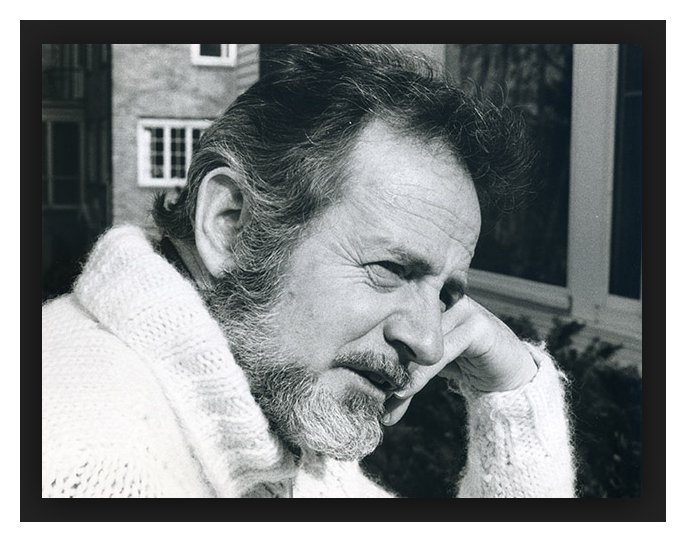

|
Michael Colgrass
Born: April 22, 1932 - Chicago, Illinois, USA The American-born Canadian musician, composer, and educator, Michael Colgrass, began his musical career in Chicago where his first professional experiences were as a jazz drummer (1944-1949). He graduated from the University of Illinois in 1954 with a degree in performance and composition and his studies included training with Darius Milhaud at the Aspen Festival and Lukas Foss at Tanglewood. He served 2 years as timpanist in the Seventh Army Symphony Orchestra in Stuttgart, Germany [see photos below], and then spent 11 years supporting his composing as a free-lance percussionist in New York City where his wide-ranging performance venues included the New York Philharmonic Orchestra, American Ballet Theater, Dizzy Gillespie, the Modern Jazz Quartet, the original West Side Story orchestra on Broadway, the Columbia Recording Orchestra’s Stavinsky Conducts Stavinsky series, and numerous ballet, opera and jazz ensembles. He organized the percussion sections for Gunther Schuller’s recordings and concerts, as well as for premieres of new works by John Cage, Elliott Carter, Edgard Varese, and many others. During this New York period he continued to study composition with Wallingford Riegger (1958) and Ben Weber (1958-1960). 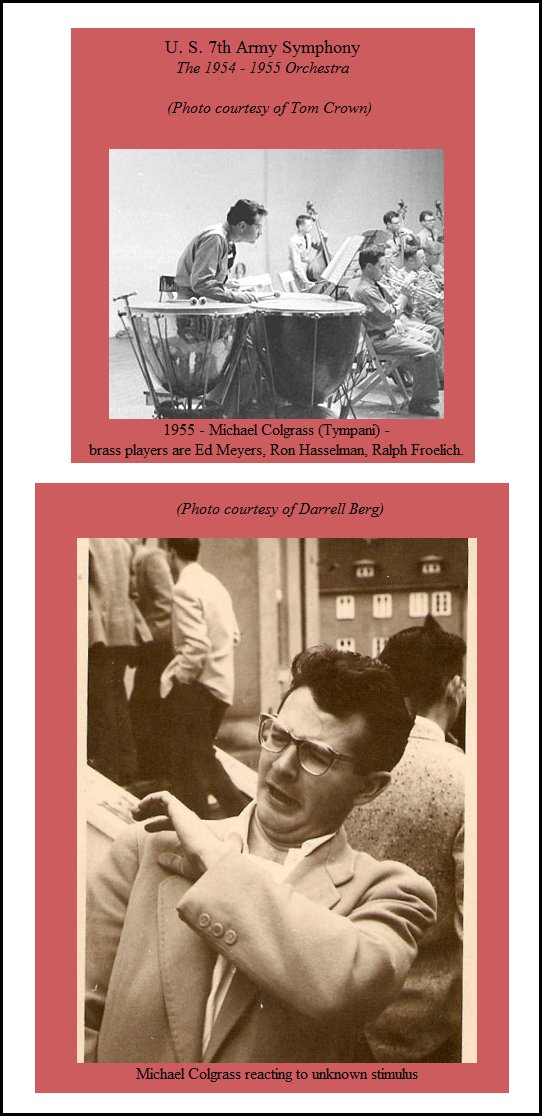
Michael Colgrass has received commissions from the New York Philharmonic Orchestra and the Chicago Symphony Orchestra (twice). Also the orchestras of Minnesota Orchestra, Detroit Symphony Orchestra, San Francisco Symphony Orchestra, Saint Louis Symphony Orchestra, Pittsburgh Symphony Orchestra, National Symphony Orchestra (Washington), Toronto Symphony Orchestra (twice), the National Arts Centre Orchestra (twice), The Canadian Broadcast Corporation, The Lincoln Center Chamber Music Society, the Manhattan and Muir String Quartets, The Brighton Festival in England, The Fromm and Ford Foundations, The Corporation for Public Broadcasting, and numerous other orchestras, chamber groups, choral groups and soloists. Michael Colgrass won 1978 Pulitzer Prize for Music for Déjà vu, which was commissioned and premiered by the New York Philharmonic Orchestra. In addition, he received an Emmy Award in 1982 for a PBS documentary Soundings: The Music of Michael Colgrass. He has been awarded two Guggenheim Fellowships, A Rockefeller Grant, and first prizes from the Louis B. Sudler International Wind Band Competition and the National Band Association (both in the USA) for his wind ensemble composition Winds of Nagual (1985). His Strangers: Irreconcilable Variations for Clarinet, Viola and Piano won the 1988 Jules Léger Prize for New Chamber Music. His Snow Walker was premiered at the 1990 Calgary International Organ Festival. 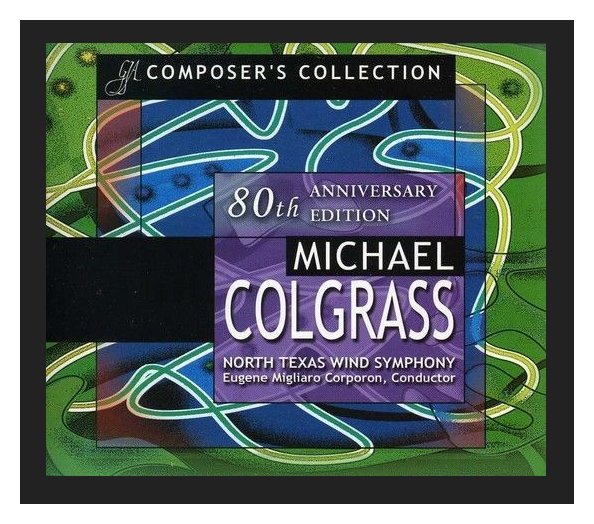
Michael Colgrass has created a method of teaching children - and teachers - how to write music using graphics. In April of 2009 he did a project with the Middleton Regional High School in Nova Scotia, where high school students wrote seven pieces for band in three days and conducted them in public concert on the fourth. As a result, his method was adopted by the Nova Scotia education system for inclusion in the junior high curriculum. Most recently he had students at Toronto’s Rockcliffe Middle School write a group composition for the Esprit orchestra in three days, which was premiered on May 25, 2010 with Alex Pauk conducting. Among his recent works are Crossworlds (2002) for flute piano and orchestra commissioned by the Boston Symphony Orchestra and premiered with soloists Marina Piccinini and Andreas Heafliger. In 2003 he conducted the premiere of his new chamber orchestra version of the J.S. Bach’s Goldberg Variations (BWV 988) with members of the Toronto Symphony Orchestra. Pan Trio was commissioned by Soundstreams Canada in 2005 and premiered by them with Liam Teague, steel drums, Sanya Eng, harp and Ryan Scott, percussion. Side by Side (2007) for harpsichord and altered piano with Joanne Kong as soloist, was commissioned by the Esprit Orchestra, the Boston Modern Orchestra Project (BMOP) and the Richmond Symphony Orchestra. Zululand (2010) for wind ensemble, was commissioned and premiered by the University of Wisconsin at River Falls. As an author, Michael Colgrass wrote My Lessons With Kumi, a narrative/exercise book, outlining his techniques for performance and creativity. He lectures on personal development and gives workshops throughout the world on the psychology and technique of performance, in which participants do exercises from this book. His newest book, Adventures of an American Composer, is published by Meredith Music and distributed by the Hal Leonard Corporation. Michael Colgrass lives in Toronto and makes his living internationally as a composer. His wife, Ulla, is a journalist and editor who writes about music and the arts. -- Note: Names which are links refer
to my interviews elsewhere on this website. BD
|
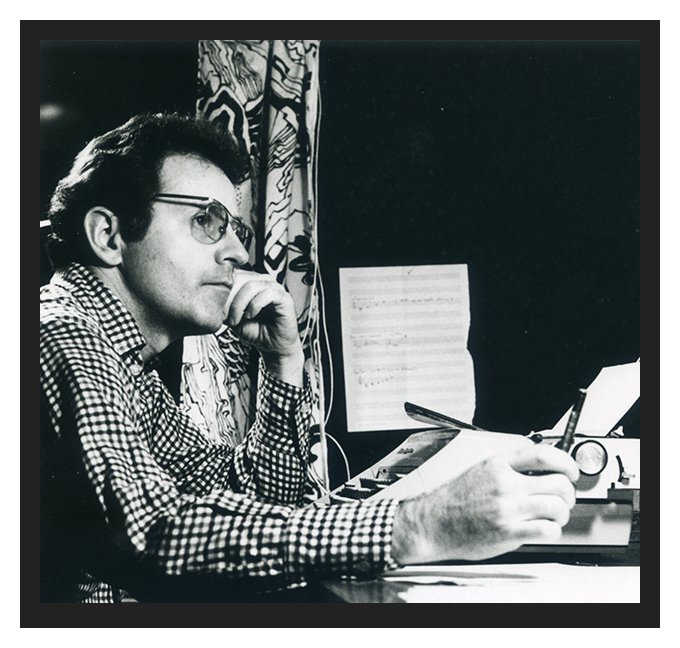 MC: The sound is so beautiful. The instruments
are so beautiful. The dimension of the players is so great, and the
history behind it is so great. It’s been going on for three, four hundred
years, and there’s so much history, so much good music written for woodwinds,
brasses, and strings, and so many good composers have been thinking about
that. It’s a tremendous challenge. We have great models.
If you’re going to think of something to do, it’s going to be a great accomplishment
to try to do. To me, I can hardly think of anything that would be as
great an accomplishment as trying to do this. It’s very competitive;
if you’re going to try and write, you’re competing with Beethoven.
That is what it amounts to, and I like the competition.
MC: The sound is so beautiful. The instruments
are so beautiful. The dimension of the players is so great, and the
history behind it is so great. It’s been going on for three, four hundred
years, and there’s so much history, so much good music written for woodwinds,
brasses, and strings, and so many good composers have been thinking about
that. It’s a tremendous challenge. We have great models.
If you’re going to think of something to do, it’s going to be a great accomplishment
to try to do. To me, I can hardly think of anything that would be as
great an accomplishment as trying to do this. It’s very competitive;
if you’re going to try and write, you’re competing with Beethoven.
That is what it amounts to, and I like the competition.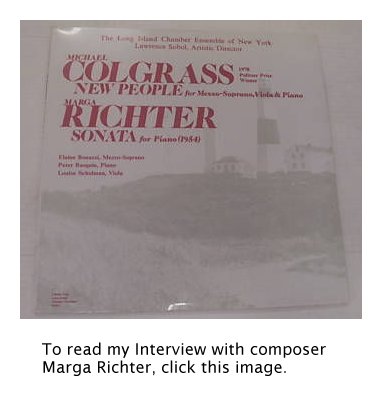 MC: I don’t know about recordings. The
main impact that I know of is films. The music is background for a
film. People have learned from films that a consonant chord, a C Major
chord, let’s say, is happiness and is good, and the minor chord is unhappiness.
Then the resolution — I’m speaking now in somewhat technical terms — is kind
of like going from the conflict to the resolution, and we’re now happy.
But if it ends ½ tone higher, uh-oh, something’s wrong. It’s
a dissonant interval, and those intervals will mean trouble, unhappiness.
Then if there happen to be a number of those dissonant intervals, that would
be the music that would be used by a movie composer to show the neurotic
or the psychotic response of a human being. We’ve come to learn to
make those associations. Perhaps, the associations are not totally
wrong, but they have become somewhat standard.
MC: I don’t know about recordings. The
main impact that I know of is films. The music is background for a
film. People have learned from films that a consonant chord, a C Major
chord, let’s say, is happiness and is good, and the minor chord is unhappiness.
Then the resolution — I’m speaking now in somewhat technical terms — is kind
of like going from the conflict to the resolution, and we’re now happy.
But if it ends ½ tone higher, uh-oh, something’s wrong. It’s
a dissonant interval, and those intervals will mean trouble, unhappiness.
Then if there happen to be a number of those dissonant intervals, that would
be the music that would be used by a movie composer to show the neurotic
or the psychotic response of a human being. We’ve come to learn to
make those associations. Perhaps, the associations are not totally
wrong, but they have become somewhat standard.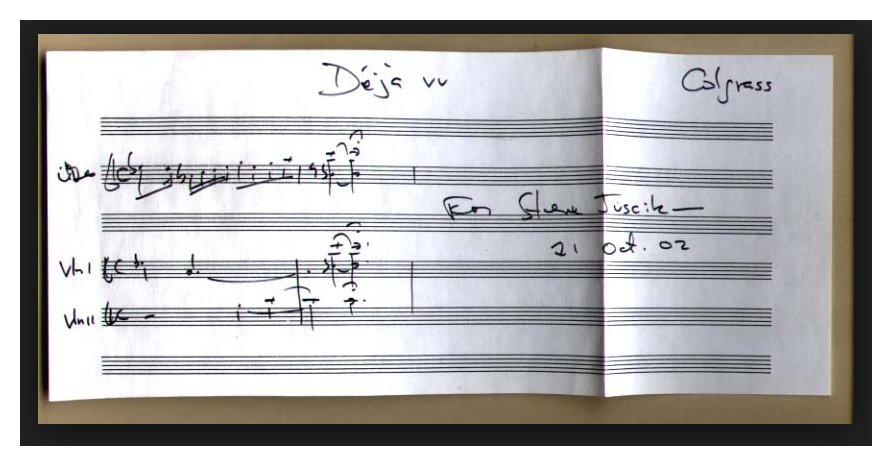
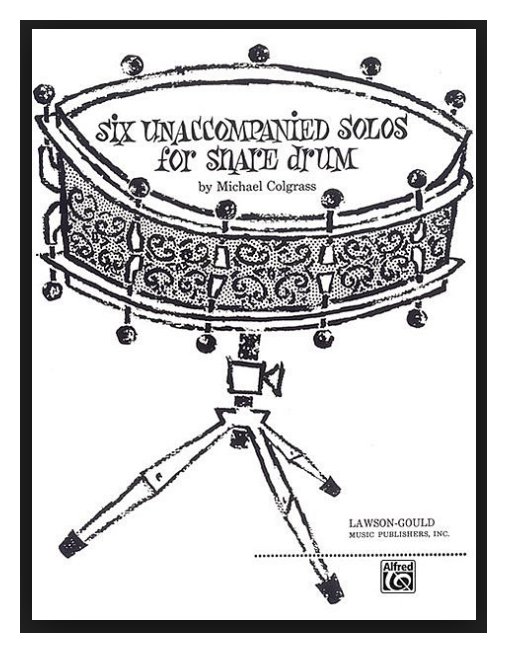 MC:
I don’t. I’ve never associated myself with any style. I have the
people I admire and composers that I admire very much, the living composers.
I’m not too unusual, I suppose, in having loved Stravinsky, Bartók,
and then I like Schoenberg very much, also.
MC:
I don’t. I’ve never associated myself with any style. I have the
people I admire and composers that I admire very much, the living composers.
I’m not too unusual, I suppose, in having loved Stravinsky, Bartók,
and then I like Schoenberg very much, also.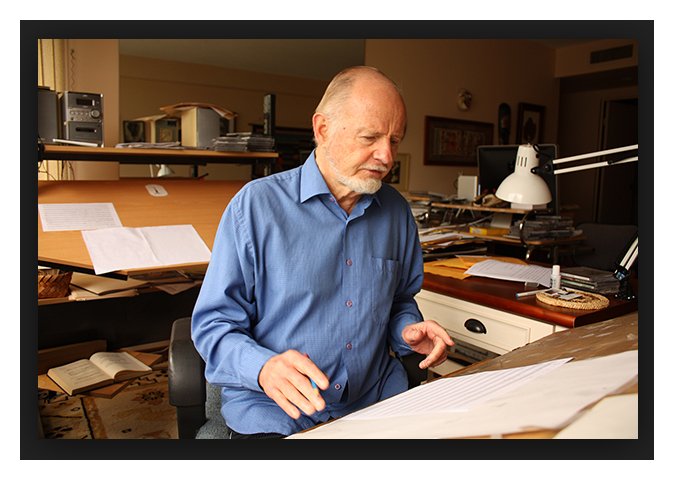 BD: Have you have written some music with text?
BD: Have you have written some music with text?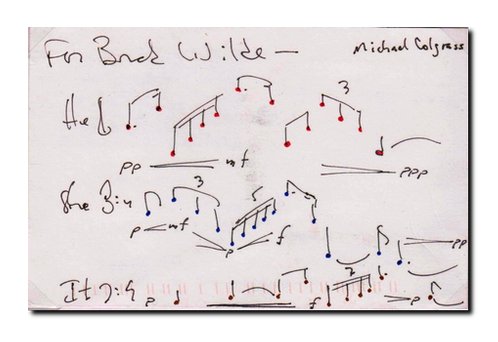 BD: What would be good with your operas
— the two of them together, or one of yours and one of somebody
else?
BD: What would be good with your operas
— the two of them together, or one of yours and one of somebody
else?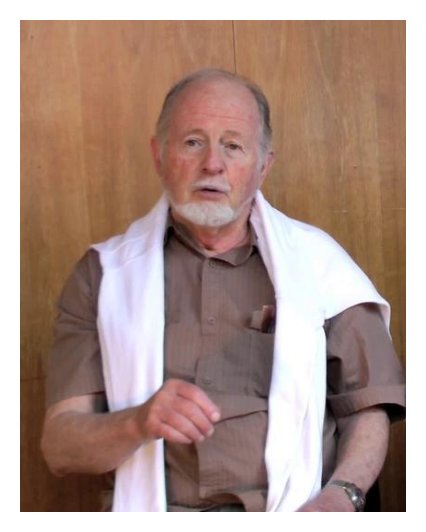 MC: Oh yes, sure. The first advice I’d give
to a young composer is to play music, and to be inside of an orchestra and
ensembles as much as possible. A lot of our composers today don’t do that.
They play the piano, maybe, and they’re outside of the ensemble. The
great experience of music is to be in with the musicians, and to hear it
and feel it in your body. That’s how you learn to orchestrate, by hearing
it, so that it just becomes part of your unconscious process.
MC: Oh yes, sure. The first advice I’d give
to a young composer is to play music, and to be inside of an orchestra and
ensembles as much as possible. A lot of our composers today don’t do that.
They play the piano, maybe, and they’re outside of the ensemble. The
great experience of music is to be in with the musicians, and to hear it
and feel it in your body. That’s how you learn to orchestrate, by hearing
it, so that it just becomes part of your unconscious process.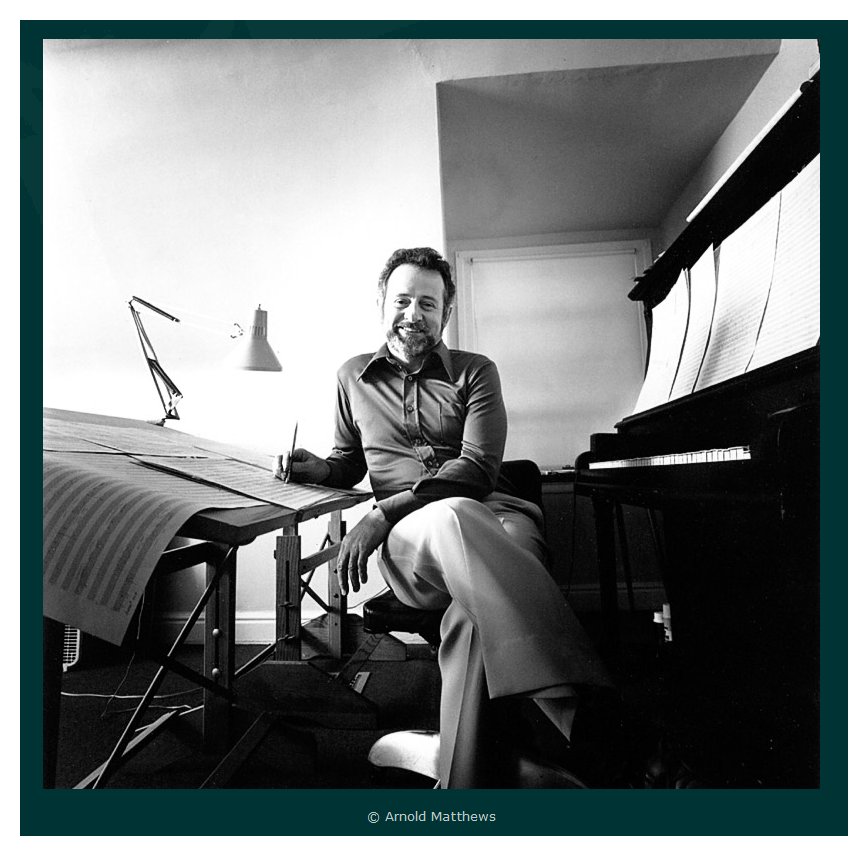
This interview was recorded at the Hilton hotel in Chicago on December
17, 1986. Segments were used (with recordings) on WNIB 1987, 1988,
1992 and 1997. It was also used on WNUR in 2007 and 2013, and on Contemporary
Classical Internet Radio in 2008. The transcription was made and posted
on this website in 2014.
To see a full list (with links) of interviews which have been transcribed and posted on this website, click here.
Award - winning broadcaster Bruce Duffie was with WNIB, Classical 97 in Chicago from 1975 until its final moment as a classical station in February of 2001. His interviews have also appeared in various magazines and journals since 1980, and he now continues his broadcast series on WNUR-FM, as well as on Contemporary Classical Internet Radio.
You are invited to visit his website for more information about his work, including selected transcripts of other interviews, plus a full list of his guests. He would also like to call your attention to the photos and information about his grandfather, who was a pioneer in the automotive field more than a century ago. You may also send him E-Mail with comments, questions and suggestions.